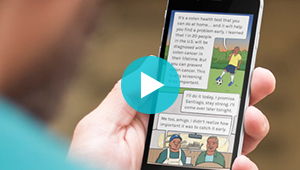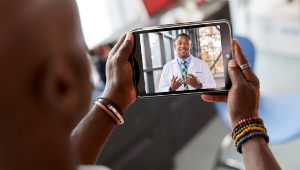Center for Community Health and Evaluation
CCHE designs and evaluates health-related programs and initiatives throughout the United States
Our organizational home — our center — is within Kaiser Permanente Washington Health Research Institute. This allows us to leverage the cutting-edge work of our colleagues, including those working to accelerate care transformation.
Our original community was in the Northwest and then the West Coast; since then, our 300 projects have spanned the entire country. Over the years, we have worked in hundreds of communities and with diverse configurations of systems and sectors. We have learned that each setting, system, and place is unique. We are committed to understanding the communities with which we are working. Focusing on the context for an evaluation — not just the evaluation questions and issues at hand — is important for understanding the implications of what we learn and strengthening our recommendations and findings along the way.
Early on, we understood “health” to mean much more than what happens within clinics and hospitals. This core principle has grown even stronger over time. We excel at working with initiatives that broaden the boundaries of what is considered health. This can mean partnering with organizations or coalitions specifically working on social and structural determinants, such as food security, housing, and legal support. Or this can mean evaluating broader efforts to change systems and influence policy. It also often means examining inequities that arise from our current health, social, and structural systems.
Evaluation, too, has moved from its academic origins to operate with a wider variety of tools, settings, and levels of participation. One of CCHE’s founders, Bill Beery, was fond of describing evaluation as a process of improving, rather than proving. What did he mean by that? In part, he was acknowledging that traditional evaluation has a somewhat well-deserved reputation for being focused almost exclusively on proving whether or not something happened. Proving whether or not something occurred as planned certainly has its uses. But in the real (and often messy) world of community health work, it may be more important to understand what is unfolding in real time, with a focus not necessarily on proving but on strategic learning and improving.
CCHE continues to learn and grow in every one of our evaluations. These past few years have pushed us in new ways as we shifted to an entirely virtual work environment, adapted our evaluation plans to reflect the needs of communities post-pandemic, and made explicit our commitment to racial justice or equitable evaluation. These changes have been woven into how and why we do our work.
Looking ahead, we will continue to walk the talk of evaluation as learning — as improving more than proving. We commit to continuing to show up with curiosity, a willingness to adapt, and the patience to listen.
To learn more about the Center for Community Health and Evaluation, please visit CCHE.org.
Our services
We help you find out what works to make communities healthier
We partner with our clients to help assess the impact of community investments and figure out what works to improve health.
To learn more, visit CCHE.org
Research

Using texting, stories to increase screening for colorectal cancer
Addressing barriers can help more people complete screenings on time.
Virtual care

Evaluating approaches to address equitable access to telehealth
CCHE study sheds light on virtual care delivery among vulnerable patients.



